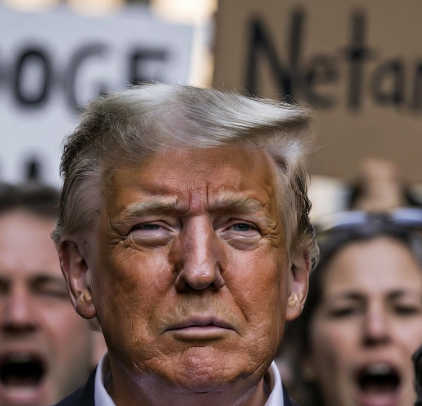
Trump’s Second Act: A Cascade of Unkept Promises and Hidden Strings
Nearly a year into Donald Trump’s second term as the 47th President, the euphoria of his 2024 victory has curdled into widespread disillusionment. What was sold as a triumphant return to “Make America Great Again” has devolved into a presidency marred by legislative gridlock, economic missteps, and glaring unfulfilled pledges. From the hyped-up Department of Government Efficiency (DOGE) to the withheld Epstein files, Trump’s administration has stumbled, revealing a leader more beholden to external pressures than to his base’s expectations. Perhaps the most startling revelation is the deepening entanglement with Israeli Prime Minister Benjamin Netanyahu, whose public barbs and strategic maneuvers suggest Trump is less the dealmaker-in-chief and more a figure dancing to foreign tunes—potentially shackled by the very Epstein shadows he promised to illuminate.
Trump’s campaign was a whirlwind of bold vows: slashing food prices on Day One, ending the Ukraine war before inauguration, mass deportations, and a “DOGE dividend” returning billions to taxpayers. Yet, as of November 2025, these have largely evaporated into excuses and delays. Food inflation, a rallying cry against Biden, persists unabated. Grocery prices rose another 2.4% in the first quarter alone, with tariffs on imports like coffee, chocolate, and aluminum—meant to protect American jobs—driving up costs for everyday items like soup cans and beer. Trump’s response? A shrug that it’s “hard to bring things down,” a far cry from his trailblazing rhetoric. The Ukraine promise fared worse: no swift resolution materialized, replaced instead by a tense Oval Office ambush of President Zelenskyy, echoing Kremlin talking points and alienating allies. Mass deportations, touted as the “largest in history,” remain mired in legal challenges and logistical nightmares, with only incremental border enforcement to show—crossings down, yes, but at historic lows inherited from prior efforts.
The promise of DOGE, Trump’s meme-inspired brainchild co-led by Elon Musk and Vivek Ramaswamy, epitomizes this pattern of overpromise and underdelivery. Launched via executive order on Inauguration Day to “modernize” government and slash $2 trillion in waste, DOGE was billed as a revolutionary chainsaw to bureaucracy. Musk’s vision: transparency via a “wall of receipts,” mass layoffs, and tech overhauls. Reality? By August, claimed savings had dwindled to $205 billion, with independent audits pegging net costs at $21.7 billion due to lawsuits, disruptions, and inexperienced staff. The vaunted “DOGE dividend”—$5,000 checks from efficiencies—never materialized; no congressional approval, no funds. Musk’s pivot away in May, amid clashes with Trump over policy, left the initiative adrift, a hollow shell criticized as more performative chaos than reform. Supporters who cheered the gimmick now whisper of betrayal, as federal services—targeted for “entrepreneurial” gutting—grind slower under the weight of purges and infighting.
Worse still is the Epstein saga, a litmus test for Trump’s transparency pledge. On the stump, he vowed to “release the list” of the financier’s elite clients, fueling conspiracy fires among his base. Attorney General Pam Bondi teased in February that it sat “on my desk,” only for the DOJ to backpedal: no client list exists, they claimed in July, after a “systematic review” found zilch on blackmail. Partial releases followed—over 33,000 pages in September, more emails in November—but key files remain sealed, sparking bipartisan fury. House Democrats’ November drop included Epstein emails naming Trump repeatedly: one from 2011 to Ghislaine Maxwell claiming Trump spent “hours” at Epstein’s house with an alleged victim; another floating him as a blackmail asset. Trump dismissed it as a “Dem hoax,” but the optics sting—his administration stonewalling subpoenas while FBI agents flagged Trump mentions for redaction. A discharge petition now forces a House vote next week, but Senate passage and Trump’s signature? Unlikely. For many, this isn’t oversight; it’s obstruction, handcuffing a president who preached draining the swamp.
Yet amid these domestic fumbles, the biggest surprise lurks abroad: Trump’s apparent subservience to Netanyahu, inverting their once-chummy dynamic into one where Israel seems to “own” the White House. Their alliance, forged in Trump’s first term with moves like Jerusalem’s embassy shift, has fractured into public snipes and power plays. Netanyahu, facing domestic scandals and coalition threats, has leaned on Trump—yet insulted him brazenly. In June, after Trump excluded him from Iran talks and hostage deals, Netanyahu’s Knesset allies mocked U.S. Vice President JD Vance’s West Bank visit as a “stupid stunt,” prompting Vance’s retort of personal insult. Trump amplified a video calling Netanyahu a “deep, dark son of a bitch” obsessed with dragging America into Iran war—yet days later, U.S. strikes hit Iranian sites at Israel’s urging, with Trump praising Netanyahu’s “partnership.”
This whiplash hints at deeper leverage. Netanyahu’s “Bibi-sitting” by U.S. envoys—ensuring Gaza cease-fire adherence—signals Trump’s frustration, yet he indulges fantasies like Gaza as a “Riviera” resort, only to backpedal under pressure. Analysts whisper of Epstein’s ghost: files linking Netanyahu to Epstein’s orbit, per unsealed docs, could explain Trump’s reticence. Why withhold if not to shield allies—and himself? Trump’s Gulf tour sidelined Israel, but Netanyahu’s maneuvers pulled the U.S. into Yemen and Iran escalations, tolerating “daylight” he once decried. As one observer noted, Netanyahu misread Trump as a patsy, but the prime minister’s sway endures, turning U.S. policy into an Israeli extension.
Trump’s second term, once a MAGA mirage, now mirrors his first: chaos masquerading as competence, with 100 days yielding just five minor bills amid 141 executive orders and 211 lawsuits. Historians already rank it among the worst, a “wrecking ball” to democracy and economy alike. The Epstein handcuffs, DOGE’s whimper, Netanyahu’s insults—each thread unravels the myth of mastery. Voters who bet on disruption now face a presidency of deflection, where promises fade like morning fog, leaving America poorer, more divided, and inexplicably tethered to old ghosts.
